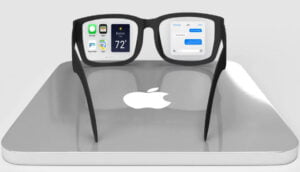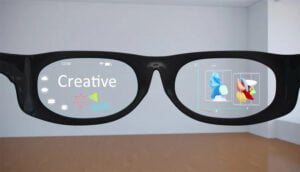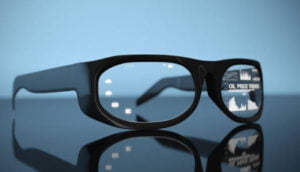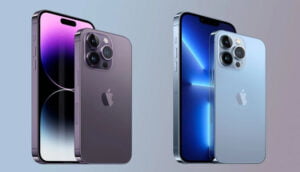Introduction:
With the recent advancements in wearable technology, smart glasses have gained attention as a potential replacement for smartphones. Smart glasses are wearable computer glasses that integrate a display, camera, microphone, and other sensors to provide users with a hands-free experience. In this article, we will explore whether smart glasses could replace smartphones in the future and what the implications of such a shift might be.

Smart Glasses vs. Smartphones:
Before we delve into the potential of smart glasses replacing smartphones, let’s look at the differences between the two devices. Smartphones are small, handheld devices that are portable and easy to use. They have a touchscreen interface that allows users to navigate through various applications and features. Smart glasses, on the other hand, are wearable devices that are worn on the face like regular glasses. They use voice commands and gestures to interact with the device, providing users with a hands-free experience.
Advantages of Smart Glasses:
One of the main advantages of smart glasses is their hands-free operation. With smart glasses, users can interact with the device without using their hands, which can be very convenient in situations where hands-free operation is necessary, such as when driving a car or operating heavy machinery. Smart glasses can also provide users with a more immersive experience, as the display is closer to the eyes, providing a more immersive visual experience. Additionally, smart glasses can provide users with access to information without having to look away from what they are doing, which can be very useful in situations where multitasking is required.

Another advantage of smart glasses is their ability to provide users with real-time information. For example, smart glasses could provide users with information about the weather, traffic, or nearby points of interest, all without the need to look at a separate device. This real-time information could be very useful in a variety of situations, such as when traveling or exploring a new city.
Potential Limitations of Smart Glasses:
Despite their advantages, smart glasses also have some potential limitations. One of the main limitations of smart glasses is their appearance. Unlike smartphones, which are often designed to be sleek and stylish, smart glasses can look bulky and cumbersome, which may deter some users from adopting them. Additionally, smart glasses could be seen as intrusive, as they have the potential to record video and audio without the user’s knowledge, which could raise privacy concerns.
Another potential limitation of smart glasses is their battery life. Because smart glasses require a display and other sensors, they may consume more power than traditional glasses, which could limit their use in certain situations. Additionally, smart glasses may require more frequent charging than smartphones, which could be inconvenient for some users.

Smart Glasses as a Replacement for Smartphones:
So, could smart glasses replace smartphones in the future? While it’s possible, there are several factors to consider. First, there is the issue of cost. Smart glasses are currently more expensive than smartphones, which could limit their adoption among consumers. Additionally, smart glasses require a certain level of technical proficiency to use, which could be a barrier to adoption for some users.
Another factor to consider is the user experience. While smart glasses offer a hands-free experience, they may not be as intuitive to use as smartphones. For example, navigating through a smart glasses interface using voice commands and gestures may not be as easy as using a touch screen interface. Additionally, smart glasses may not offer the same level of functionality as smartphones, which could limit their appeal.
However, it’s important to note that the technology behind smart glasses is still in its early stages. As technology advances, we may see improvements in both cost and user experience, making smart glasses a more viable replacement for smartphones.




